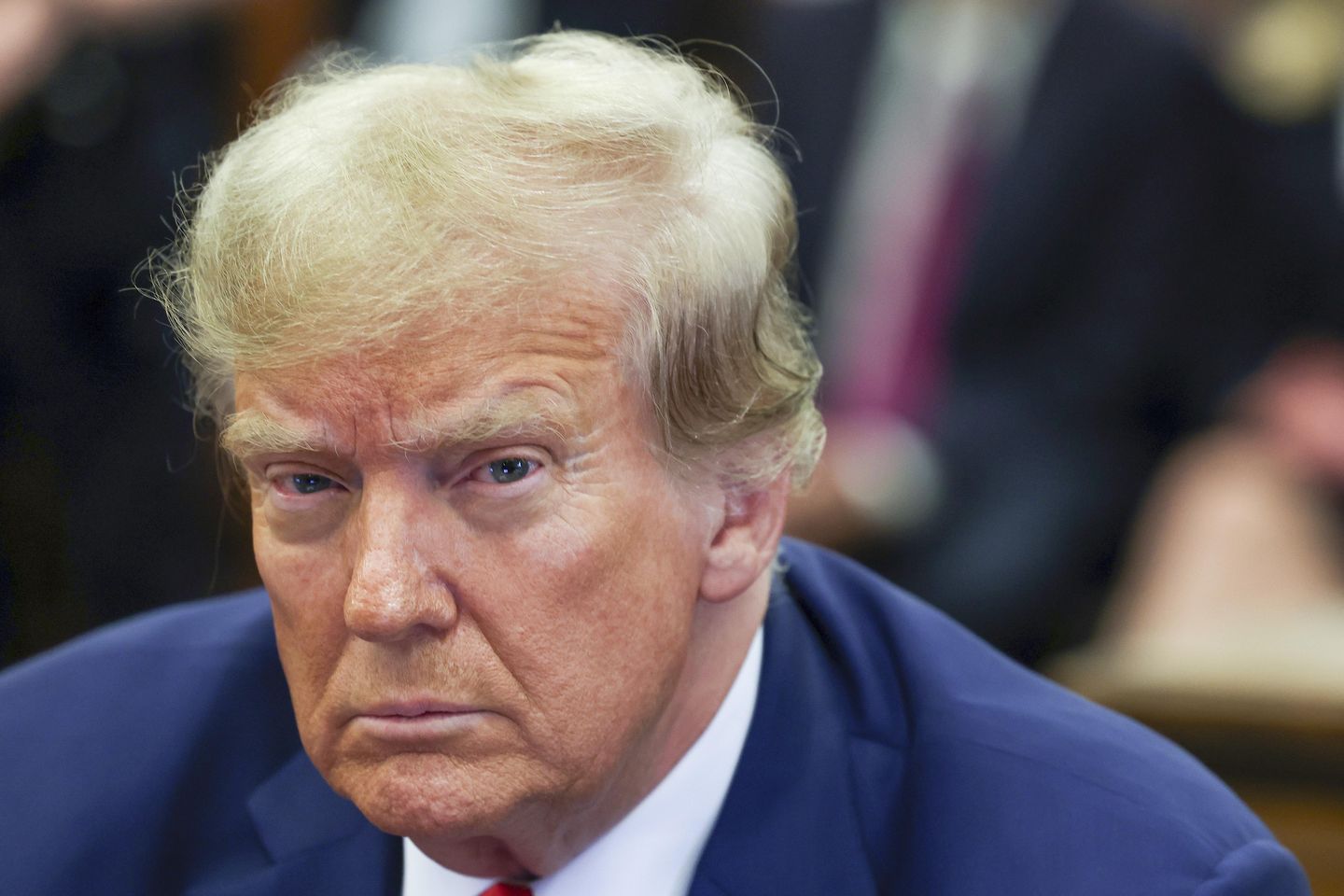
The Supreme Court on Wednesday announced it would take up former President Trump’s case for presidential immunity.
The former president has claimed he’s immune from federal charges related to the Jan. 6, 2021, riot at the Capitol and Mr. Trump’s efforts to overturn the 2020 election results.
The justices will now decide if a president enjoys presidential immunity from criminal charges and if so to what extent.
In an order issued by the court, the justices set the legal battle for oral arguments on April 22, with a decision expected by June. The order keeps in place a hold on preparations for Mr. Trump’s trial on charges related to his attempts to overturn his election loss in 2020.
Special Counsel Jack Smith had told the justices not to hear the dispute but if they did, to do so this term so as not to further delay the trial.
Mr. Trump had sought a stay of the ruling from the U.S. Court of Appeals for the D.C. Circuit, which had ruled the ex-president’s claim of blanket immunity would put him above the rule of law and “collapse our system of separated powers.”
Attorneys for Mr. Trump said the high court had a “compelling” reason to take up the case.
“President Trump’s claim that presidents have absolute immunity from criminal prosecution for their official acts presents a novel, complex and momentous question that warrants careful consideration on appeal,” the petition said.
It took at least four justices to vote to hear the dispute.
It’s expected the justices will issue a ruling by the end of June — well ahead of the November election. It’s possible the trial could potentially start ahead of the election.
Mr. Trump wanted the Supreme Court to consider whether a president enjoys immunity from criminal prosecution for acts performed within the “outer perimeter of his official responsibility.”
He also asked the court to consider whether the principle of double jeopardy prevents criminal prosecution of a president who has been impeached and acquitted by the Senate for the same underlying allegations.
Mr. Trump’s lawyers said presidents make the toughest decisions of any official, making them an easy target for lawsuits.
“If the prosecution of a president is upheld, such prosecutions will recur and become increasingly common, ushering in destructive cycles of recrimination,” they wrote in their filing.
The justices are also weighing a separate case this term involving state attempts to remove Mr. Trump from the ballot, or they could put the matter on its regular calendar — something that would likely push the matter beyond the election.
A grand jury in Washington indicted Mr. Trump on four criminal counts: one count of conspiracy to defraud the U.S., one count of conspiracy to violate civil rights and two counts of attempting to obstruct the vote-certification proceedings.
Mr. Trump says the trial is part of a coordinated Democratic effort to thwart his run for reelection.
He faces four criminal cases up and down the East Coast while he campaigns as the front-runner for the GOP presidential nomination and a rematch with President Biden.
The federal election subversion case is viewed as the marquee case.
Mr. Smith secured the indictment based on actions Mr. Trump took following his 2020 election loss to President Biden, including pressuring state officials and the Justice Department to find voter fraud; setting up a false slate of electors in states he lost to Mr. Biden; and leaning on Vice President Mike Pence to send the electoral vote-counting process back to the states instead of certifying the votes in Congress.
Mr. Trump said he was acting in his official capacity when he tried to root out election fraud in 2020 and overturn the results. He said presidents must make tough calls all the time, and failing to grant immunity would spark a cycle of political prosecutions from administration to administration.
The circuit court rejected that argument.
“We conclude that the interest in criminal accountability, held by both the public and the executive branch, outweighs the potential risks of chilling presidential action and permitting vexatious litigation,” the ruling said.
Mr. Trump’s lawyers revived the argument in their petition to the Supreme Court, saying the potential for prosecution will overshadow every future president’s official acts.
“The president’s political opponents will seek to influence and control his or her decisions via effective extortion or blackmail with the threat, explicit or implicit, of indictment by a future, hostile administration, for acts that do not warrant any such prosecution,” they wrote. “This threat will hang like a millstone around every future president’s neck.”
• Tom Howell Jr. contributed to this report.

